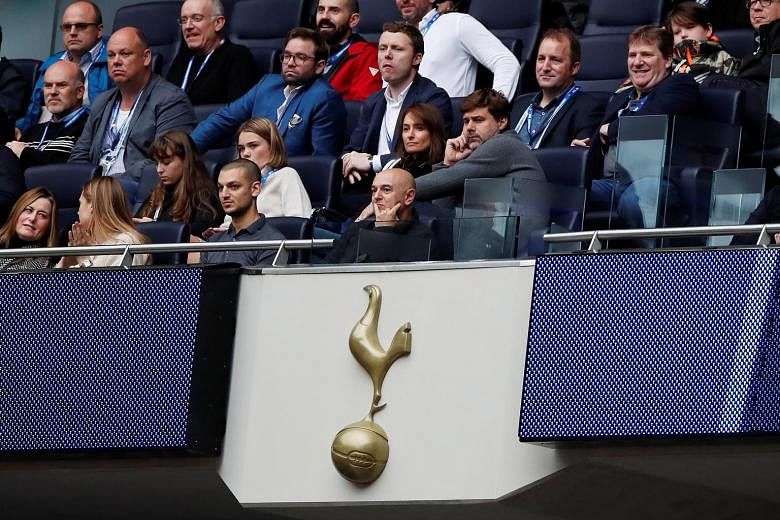The lament that football has traded its soul for money has been associated with a departing manager of Tottenham long before Mauricio Pochettino was fired five months after taking the club to their first Champions League final.
As Keith Burkinshaw walked away from White Hart Lane in 1985 despite having won the Uefa Cup in his last match at the helm, he said: "There used to be a football club over there."
While idealists still cherish Spurs' 1961 double-winning captain Danny Blanchflower's paean that "the game is about doing things in style and with a flourish", any remembered feeling that football was once the people's game with a pure sporting heart is a nostalgic oversimplification.
Whatever the combined headache of factors that led Spurs chairman Daniel Levy to see Pochettino out of the new stadium door and sweep in Jose Mourinho's deadpan unromanticism, it is fair to say he is not signed up to all of Blanchflower's manifesto.
The remarkable ascendancy of the club under the Argentinian will always be remembered for June's Champions League final and the dramatic comeback victories at Manchester City and Ajax on the way, when the coach was overwhelmed by emotion and humility for his achievements.
But now, so soon after, business is business. Blanchflower and Burkinshaw could probably never have envisaged the huge financial architecture with which modern football is now surrounded.
Nor how it must be contemplated by Levy and Joe Lewis, the owner and billionaire trader, with the monumental new stadium to pay for.
The sacking of Pochettino so early in the season, to give Mourinho time for his medicine to work, is a reminder of the adamant priority given to Champions League qualification, and the stressful way it operates for England's football corporations.
Put simply, the Premier League has a top six of clubs by earnings and regular performance, but four regular qualification places for the Champions League. The two who miss out will suffer a football and financial hit, which is the closest feeling they know to relegation.
Pochettino can be seen partly as a victim of his own overachievement, as he secured serial European participation, and by some way in sixth place of the English top flight's top-six earning clubs.
Uefa will publish in the next few days the distribution to the clubs of the millions from the Champions League last term, the first from the increased €4 billion (S$6 billion) TV deals covering 2018-21. Spurs got €61 million in 2017-18 when they exited in the first knockout round and the latest figures are expected to be around €80 million as a result of their run to the final.
Those sums, which help to elevate the Premier League's top six above their aspirant competitors, are Uefa's distributions alone.
The participating clubs also earn from hosting the big European nights at their stadiums, increased sponsorships and other uplifts.
For Spurs, their new stadium project has turned Champions League participation from a glad bonus to a target approaching a requirement, with the club having borrowed £637 million (S$1.12 billion) which Levy refinanced in September.
To make the repayments, fully exploit the commercial benefits of that luxury ground in London, and maintain the club's place in the moneyed big six, Levy's patience with a cherished manager has lasted only 12 matches this season.
There still is a football club over there, but Spurs themselves charted the course from glory game to industry decades ago.

